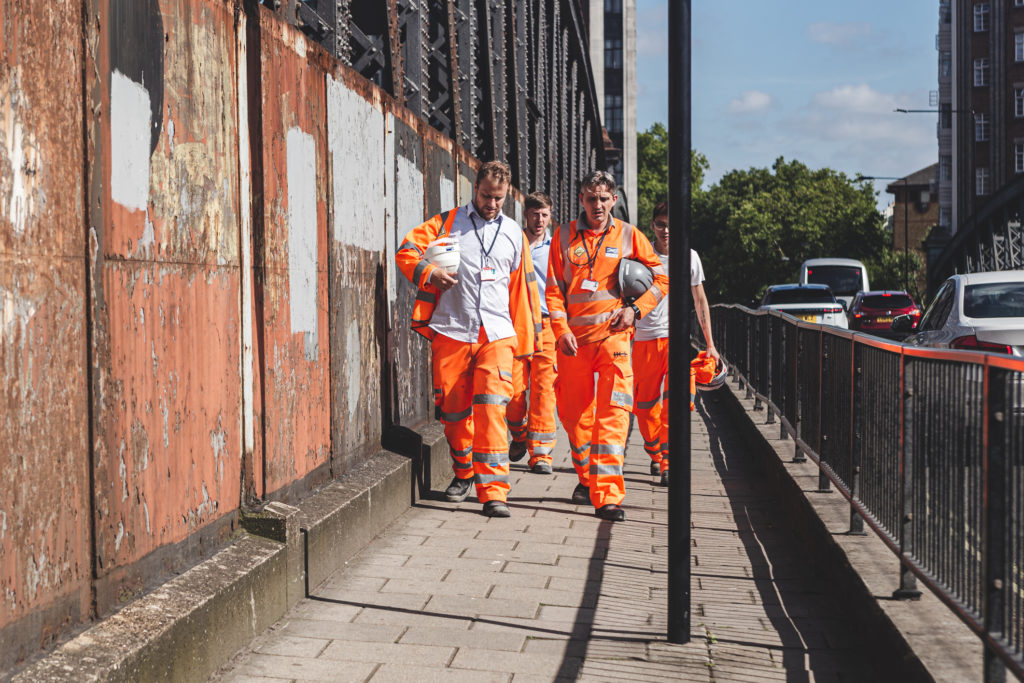The rail industry is estimated to require thousands of additional workers each year over the next decade in order to complete planned projects and maintain current services. If you’re looking to boost your career, this could work to your advantage. But what skills is the industry calling out for and how can you join a training programme? Intertrain – City & Guilds gave us their expert analysis.
The rail industry is expected to require thousands of additional workers over the next five to 10 years. What is behind this demand for workers and how likely is it that these roles will be adequately filled?
Thanks to a number of huge Government-funded rail projects including HS2 and Northern Powerhouse Rail, the rail industry is on the cusp of leading a once-in-a-generation infrastructure revolution in the UK. These large-scale projects have the potential to create as many as 120,000 new quality jobs over the next five to 10 years which could drive up social mobility, support the ambition to level up the country and help to get the UK’s economy firing on all cylinders again.
According to the National Skills Academy for Rail’s (NSAR) analysis, on average, between 7,000 – 12,000 additional people will be required every year over the next five to seven years. With current modelling showing peak demand around 2025 – in three years’ time – with the biggest skills gaps due to open at levels 3 and 5, people must be recruited now to equip them with the relevant skills and experience to meet demand at the time it is needed.
There are already significant skills shortages in rail and the sector has an aging workforce, so without a concerted effort to address the ongoing skills challenges (i.e., attracting young workers and a more diverse workforce) it’s highly likely that we could struggle to fill these roles.
Which positions are most in demand by the industry, and what difficulties do companies face in filling these roles?
A variety of skills and experience will be needed in the rail sector to fill these skills gaps. Some of the positions that are most in demand by the industry include customer service assistant, driver, maintenance operative, and engineer.
For several years, the rail industry has been suffering from a number of labour force issues including skills shortages, an ageing workforce leading to a retirement cliff edge, a lack of diversity, reputational issues, and broken career paths. In addition, for decades the industry has relied on Europe for a steady stream of talent to fill roles such as engineers, construction workers, and others, which now may be stymied by the end of freedom of movement brought about by Brexit.
Now, at a time when overseas talent and skills are increasingly harder to access, and the UK faces unprecedented economic difficulties, it’s clear that the rail industry still has a great deal of work to do to truly address these issues, meet the demand for workers, and adequately fill these rolls.

What roles tend to be the most popular among new entrants to the industry and those within the industry switching career path?
With most new entrants to the industry having little prior experience or qualifications, the most popular role to begin with would be a track operative. In this role, the operative will understand the rail industry, along with the health and safety implications it brings. Any new entrant to the industry would start off as a ‘blue hat’ and must work towards their ‘white hat’. Once the ‘white hat’ has been achieved, the industry is fully open, and they are able to start upskilling to different competencies and different job roles.
Can you give some examples of the training courses / schemes you provide? How are they taught, and what qualifications do they provide?
Intertrain predominantly provide rail training courses. An example of this are the Government-funded Skills Bootcamps. Currently, Intertrain is running Wave 2 Extension Skills Bootcamps which include new entrant track operative; new entrant assistant welder; rail welder; assistant welder; controller of site safety (COSS); engineering supervisor (ES); on-track-plant operative (OTP); overhead linesman (OLEC); and safe system of work planner (SSOWP). The rail courses we provide, all give the necessary rail competencies to work in the rail industry and new employment opportunities.
Intertrain also runs eight-week construction and rail training courses. This gives any new entrants two avenues to investigate when first enquiring about opportunities. With the construction course, the learners will come away with a CSCS card allowing them to work in the construction industry in roles such as a civil rail engineer.
As well as these courses for adults, we also run Level 2, Level 3, and Level 4 apprenticeships. These develop individuals’ skills and knowledge to give them what they need to work in the industry. The leaners complete the apprenticeship and leave as an advanced track operative or a rail engineer. Intertrain learners work with leading employers, not limited to the rail industry, to look at other employment opportunities in order to keep individuals in sustained employment.
How straightforward is it for individuals to apply for courses / schemes? What is the process and what costs are involved?
Firstly, all funded courses at Intertrain are 100% free to the learner. This is because Intertrain receives funding from the Government, bursaries, and other internal funding and the standard commercial courses are paid for by the sponsor (employer). As for the process of booking courses or enquiring, this is very simple. The applicant can complete an online form at https://railway-training-courses.com, which automatically goes through to the Intertrain funding/recruitment team who will then get in touch. Applicants can also email [email protected] with their enquiry, or alternatively call the funding/recruitment team and speak to a member of Intertrain staff direct.

Do you have any advice for those already working in rail and looking to change their career pathway?
With new rail infrastructure projects expected to create new job openings, employers should look for ways to help people enter the industry mid-career. Employers and training providers could work together to create a series of short, sharp, but high-quality training courses, that help people with existing transferrable skills top up their skillsets and prepare for careers in rail. Individuals should also consider Government training grants and other bursary opportunities, such as the City & Guilds Foundation and Intertrain track employment programme.
Do you expect that the incoming changes to the industry will have any impact on training provision or demand going forward?
Intertrain is currently providing employers with high-skilled individuals to strengthen their workforce and capabilities of working in the industry. The demand for training is expected to rise as the rail industry continues to grow and be an integral part of the country’s transport infrastructure. More recently we have begun to see an increase of women entering the industry, and this is something we hope will continue with an industry focus on recruiting underrepresented groups. Intertrain is also innovating training provision by introducing more e-learning to better support individuals training needs and will continue developing training to support the needs of the industry.
Image credit: istockphoto.com

